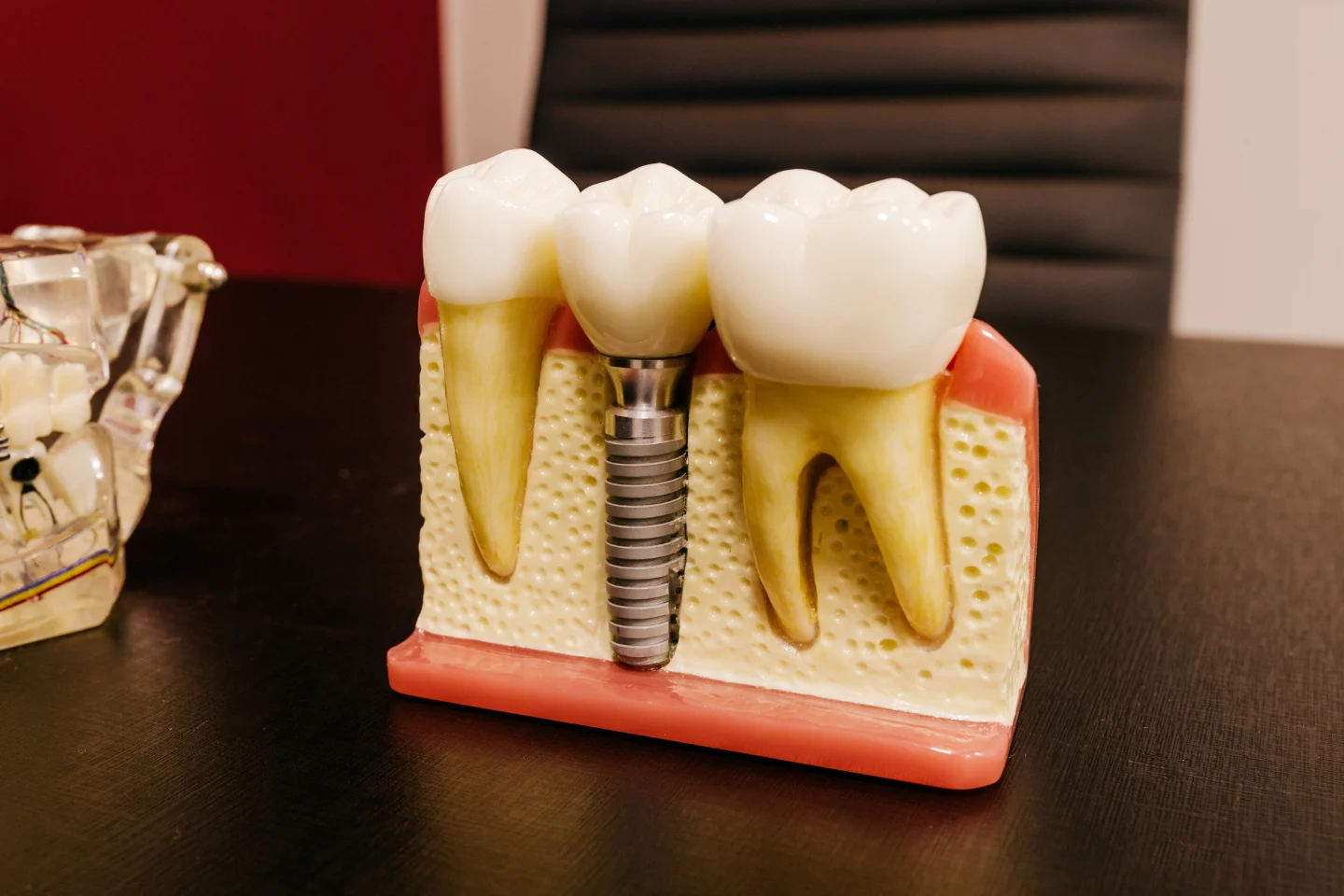September 29, 2025



Dental implants have become a widely recognised solution for replacing missing teeth. They offer stability, comfort, and a natural appearance, allowing individuals to maintain their quality of life and oral function. However, if you are dealing with gum disease, you may wonder whether dental implants are a suitable option for you. At Freshdental in Bayswater, London, we address these concerns with careful assessment, professional guidance, and personalised treatment planning.
In this article, we will explore the relationship between gum disease and dental implants, explain the treatment process, and provide advice on maintaining oral health before and after implants.
Have you ever noticed your gums bleeding when you brush or floss? Or perhaps your breath does not stay fresh, no matter what you do? These could be signs of gum disease, one of the most common dental problems and also one of the most misunderstood.
Gum disease, also known as periodontal disease, occurs when plaque, a sticky film of bacteria, builds up on your teeth and irritates your gums. If that plaque is not removed properly over time, it can lead to infection and damage to the structures that support your teeth.
At this stage, the gums become red, swollen, and may bleed easily. The positive news is that gingivitis is reversible with proper brushing, flossing, and a professional cleaning from your hygienist.
If gingivitis is left untreated, it can progress to periodontitis. This is more serious, as the infection spreads deeper and begins to damage the bone that supports your teeth. While the damage cannot be reversed, it can be managed to prevent further progression.
In some cases, gum disease may show no obvious symptoms at all. This is why regular dental check-ups are so important.
Plaque is the primary cause, but several other factors can make gum disease more likely or more severe:
Yes, it can. The right approach will depend on how advanced the gum disease is.
If it is caught in the early stage, known as gingivitis, your gums can often return to full health with a good daily routine of brushing and flossing, along with a professional cleaning from your hygienist.
When gum disease has progressed further into periodontitis, treatment focuses on stopping it from getting worse. This may involve a deeper clean below the gum line, sometimes called scaling and root planing, to remove the plaque and tartar that ordinary brushing cannot reach.
The most important thing to remember is that gum disease can be managed, and with regular check-ups and good home care, you can protect your smile for the long term.
Dental implants are small titanium posts placed into the jawbone to replace missing teeth. For long-term success, implants rely on healthy gums and strong bone. If gum disease (periodontitis) is present, it can interfere with healing and increase the risk of complications, including implant failure or infection around the implant. This condition is known as peri-implantitis.
The short answer is yes, but with careful management. At Freshdental in Bayswater, London, we follow a structured approach:
Can gum disease cause implant failure?
Yes, active gum disease can increase the risk of implant failure. Infection or inflammation around the implant can compromise healing and long-term stability. Treating gum disease before implant placement significantly improves outcomes.
How long should I wait after treating gum disease before getting implants?
The waiting period depends on the severity of your gum disease and your individual healing response. Our dentist at Freshdental in Bayswater will assess when it is safe to proceed with implants. This may take a few months after treatment and stabilisation of gum health.
Are dental implants suitable for everyone with gum disease?
Not everyone is an immediate candidate. Individuals must have healthy gums and sufficient bone to support the implant. In some cases, bone grafting or additional periodontal treatment may be required.
How do I care for my implants long-term?
Daily brushing, flossing, and routine dental check-ups are essential. Professional teeth cleaning in Bayswater helps maintain healthy gums around the implants and prevents peri-implantitis.
Can children or young adults get implants if they have gum disease?
Dental implants are usually considered for adults whose jaw growth is complete. Gum disease treatment is essential, regardless of age, before any implant procedure is planned.
Dental implants can be a predictable and natural-looking option for many patients seeking to replace missing teeth. Maintaining healthy gums is an important factor in supporting the success of implant treatment and helping to preserve the long-term health of the implants. While results can vary between individuals, proper oral care and regular dental check-ups play a key role in achieving the best possible outcomes.
At Freshdental in Bayswater, London, we carefully treat and manage any gum disease before implant placement, offering thorough assessment, personalised treatment, and ongoing oral care. By combining diligent home care with professional support, including teeth cleaning in Bayswater and routine dental check-ups, you can help protect your gums and ensure your dental implants remain strong and healthy. Book a consultation at Freshdental today and find out if dental implants could be the right option to restore your smile.
I have just completed Invisalign treatment here and am thrilled with the results.


I have been seeing Monik at Freshdental for a while now and couldn't be happier with the service. I have just completed Invisalign treatment here and am thrilled with the results. Have recommended Monik to many of my friends & family and will continue to do to.
